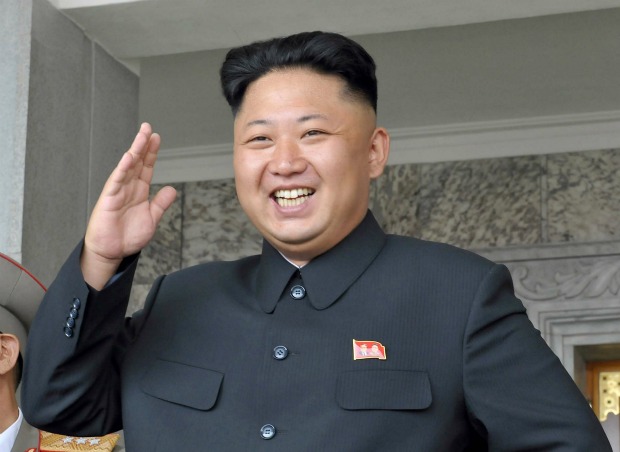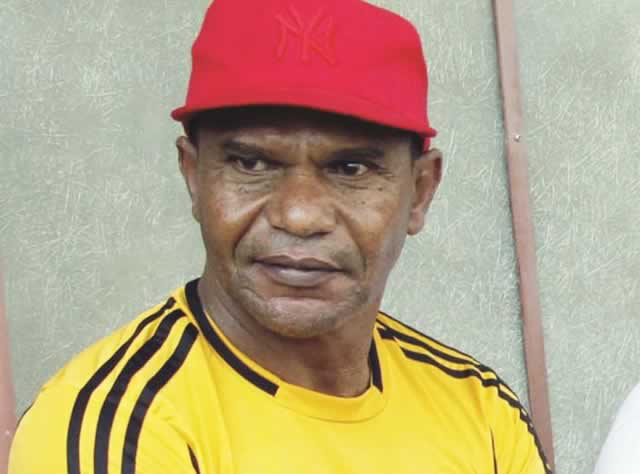US deploys B-52 bomber after North Korea’s nuclear test

The United States has deployed a B-52 bomber on a low-level flight over its ally South Korea in a show of force following North Korea’s nuclear test last week.
North Korea’s fourth nuclear test angered both the United States and China, although the US government and weapons experts doubt the North’s claim that the device was a hydrogen bomb.
The B-52, based in Guam and capable of carrying nuclear weapons, was flanked by two fighter planes, a US F-16 and a South Korean F-15, in a low flight over Osan Air Base yesterday, before returning to Guam, the US military said in a statement.
Osan is south of Seoul and roughly 100km from the North Korean border. The flight was “in response to recent provocative action by North Korea”, the US military said.
“B-52 missions reinforce the US commitment to the security of our allies and partners, and demonstrate one of the many alliance capabilities available for the defence of the Republic of Korea,” the US military said.
“The US maintains an ironclad commitment to the defence of our partner nation, and this combined mission demonstrates the strength of the alliance between the United States and the Republic of Korea and the resolve of both nations to maintain stability and security on the Korean Peninsula.”
North Korean leader Kim Jong-un maintains that Wednesday’s test was of a hydrogen bomb and said it was a self-defensive step against a US threat of nuclear war.
Any hint of the US’’ nuclear power enrages Pyongyang, which links its own pursuit of atomic weapons to what it sees as past nuclear-backed moves by the US to topple its government.
The B-52 flight follows a victory tour by North Korean leader Kim to celebrate the country’s widely disputed claim of a hydrogen bomb test. Kim is seeking to rally pride in an explosion viewed with outrage by much of the world and to boost his domestic political goals.
There was no immediate reaction from North Korea’s state media to the B-52 fly-over, which also happened after North Korea’s third nuclear test in 2013.
Since on Friday, South Korea has been blasting anti-Pyongyang propaganda from huge speakers along the border, and the North is reportedly using speakers of its own in an attempt to keep its soldiers from hearing the South Korean messages.
Meanwhile, North Korean leader Kim said the country conducted a hydrogen bomb test as a self-defensive step against a US threat of nuclear war and had a sovereign right to do so without being criticised, state news agency KCNA reported yesterday.
North Korea’s fourth nuclear test on Wednesday angered both the United States and China, which was not given prior notice, although the US government and weapons experts doubt the North’s claim that the device it set off was a hydrogen bomb.
“The DPRK’s H-bomb test . . . is a self-defensive step for reliably defending the peace on the Korean Peninsula and the regional security from the danger of nuclear war caused by the US-led imperialists,” KCNA quoted Kim as saying.
“It’s the legitimate right of a sovereign state and a fair action that nobody can criticize,” he said.
Kim’s comments were in line with the North’s official rhetoric blaming the United States for deploying nuclear weapons on the Korean peninsula to justify its nuclear programme but were the first by its leader since Wednesday’s blast.
The United States has said it has no nuclear weapons stationed in South Korea. But it has been in discussion with the South about deploying strategic weapons on the Korean peninsula after the test. Media said these could include nuclear-capable B-2 and B-52 bombers, and a nuclear-powered submarine.
Experts believe the test, which produced a seismic tremor of 5.1, too small to be a proper hydrogen bomb test, was designed to set the stage for a rare general meeting of its ruling Workers’ Party, the first since 1980.
Kim noted the significance of the timing of the test as being held in the year of the party congress, “which will be a historic turning point in accomplishing the revolutionary cause of Juche,” according to KCNA.
Juche is the North’s home-grown state ideology that combines Marxism and extreme nationalism established by the state founder and the current leader’s grandfather, Kim Il Sung.
KCNA said Kim made the comments on a visit to the country’s Ministry of the People’s Armed Forces. – AFP











Comments